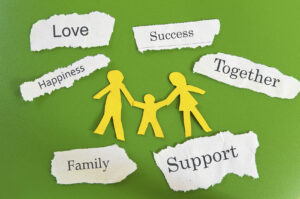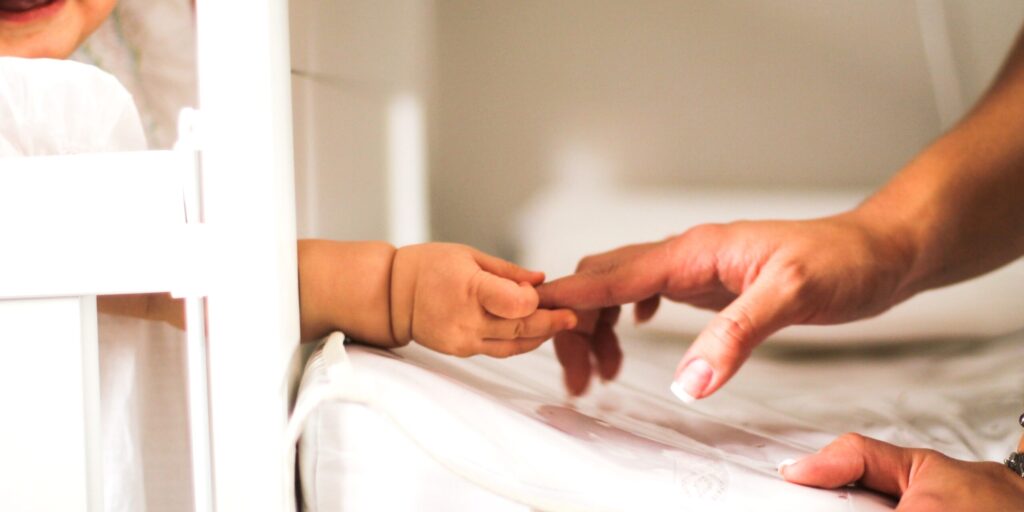Read time 5 minutes
This blog is another opportunity to feel grateful. Thank you, dear Universe, you continue to bless me with recovery and health.
Isaacs’ Syndrome is not the kind of disease that one could manage alone.

In this blog post, I will share how my family played an important role in my journey. Their spirit proved vital for me to fight rare and chronic diseases. As I reflect on the years since my diagnosis, I wish to acknowledge my family’s strength.
I found it relieving and healing to recount my journey as a patient. I was going through a rare disease and soon got diagnosed with a list of chronic diseases. Membranous Glomerulonephritis, Glaucoma and Lyme disease.
Isaacs’ Syndrome is a neuromuscular health condition that stems from muscle hyperactivity. Lyme disease is a bacterial illness that gets transmitted through ticks. Glaucoma is an eye-related disease that damages the optic nerves. And Membranous Glomerulonephritis is a progressive kidney disease.
Many rare diseases characterize unpredictable situations and symptoms. It can lead to a heightened sense of uncertainty for patients. The day-to-day unpredictability can build anxiety, feeling hopeless, frustrated and demotivated.
You might guess that these diagnoses altered the course of my life. My identity changed from being a healthy person to becoming a patient. The transition was torturous, to say the least. The suffering percolated into an integrated interventional process.
Dealing with stabbing pain, twitches, and alien symptoms throughout the body isn’t easy. I was confined to bed with props and prescribed medicines. The situation made me vulnerable to creating further complications to my neurological condition. I felt fatigued.
I needed assured personal support for both my physical and mental stability.
Where should I begin? Which words to use to communicate that my family became the armour defending me from all outside interventions?
Do we ever wonder who are the people who become so important to us, and for what reason?
I tried answering this question.
In most cultures, including ours, being part of a family still means being there during thick and thin. The idea is not expecting reciprocation instead be there without any self-motive.
Although it is a fundamental human quality to care for others. But, caring when at times becomes tough can prove challenging. It is important to have a strong support system during difficult times.
I dedicate this article to all the families. It goes to all the caregivers because rare disease patients like me can manage better.
I am lucky to have a great family.
Mothers deserve to be celebrated:
I bow down to my incomparable mother. Despite being unwell she cared for me. Her presence was like a heartbeat to my support system. Right from the time of my diagnosis to various stages of hospitalization.
The list goes endless:
Her day started like a hurricane in its perfect power. She woke up before dawn and managed my ayurvedic medicines. She chanted affirmation to fill me with positivity, her care and love never ended. She accompanied me to doctors and ensured customized meals. Her affection and concern didn’t let her sleep when I was in pain.
My brother is my superhero:
He was always on a caffeinated alert during emergencies. He always found ways to cheer me up. He skipped work to spend time with me. Making sure that none of my doctor appointments were missed, he went to hospitals. He was a part of every clinical test and had the infrastructure ready to manage medical flare-ups. His daily work was so beautifully divided up that I could hardly hint at the unseen efforts.
To be honest, my family was the reason I smiled throughout the toughest moments.
Many a time, I found my favourite dark chocolate along with the medicines. They played board games and lost on purpose to inspire me. They reminded me often to carry my medicines while going out. They discussed work with me without expecting any suggestions or feedback in return.
Families can create a real impact both on our physical and emotional aspects. I felt a huge change in my emotional well-being because of their presence.
Together they provided a shoulder to lean on. Their suggestions and advice played the center of my decision-making process. They appreciated even the little things I did to keep me going. They encouraged me to write pursue my hobbies and watch cartoons for a laugh. They allowed me to cheat a bit on my diet and asked my college buddies to swing by. It was my family who hearkened to my boring talks.
One of their key roles was to connect with other rare disease patients and their families. It was because of this idea I could form a great support system for myself.
They never showed their vulnerability instead faced the entire situation with vigour. Instead held their helping hand to achieve a higher percentage of successful treatments. They helped in manage my finances by assisting me with insurance. They communicated research solutions in a more comprehensible way. It made me more solution-driven with an improved healthcare experience.
A family is not a set of perfect people living together:
We are a set of imperfect people trying to make a perfect family that mutually benefits all. We must talk about families in a much more meaningful way and need not pretend.
Why is it we feel that we can only talk about those experiences that are positive?
A family goes beyond perfection. It is the relationship of love and harmony that matters most. The idea of bonding enhances coming together to celebrate small and big things in life.
To conclude:
Some situations in life need more support than others. The bridge between my family and healthcare professionals was strong. It was much to benefit the care I required. During my journey, I felt how my family’s efforts, love and care added much of a positive flavour to my good health.
I am at a loss for words to express gratitude for my family’s unwavering support. Their love and dedication are the reasons why I could smile even in the toughest moments.
All in all, the assurance I received from them is incomparable. Each day strengthens our pillars of togetherness.
DISCLAIMER
The views expressed in this article are the author’s own and do not represent any kind of medical advice.


